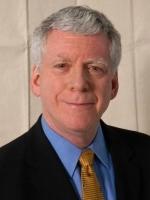Cause and Effect in the Requisite Organization Theory
Speaker A The other thing that the conceptual framework does is it gives us the vocabulary through which to formulate at scientific laws of cause and effect. And that's the second area is science, whi...
Transcript of the presentation video
NOTE: This transcript of the video was created by AI to enable Google's crawlers to search the video content. It may be expected to be only 96% accurate.
Speaker A The other thing that the conceptual framework does is it gives us the vocabulary through which to formulate at scientific laws of cause and effect. And that's the second area is science, which is laws of cause and effect and sort of maps of what exists. Conceptual framework in biology, for example, includes the concept of species. We can then also do the scientific work of identifying what species are extant, what species are extinct, et cetera. And then also, as I say, looking at laws of cause and effect. So the move I mentioned before about the move from Aristotle's to Galileo's conceptual frameworks, parallel to that was a move in science, in the laws of cause and effect. Aristotle says heavier objects move faster than fall faster than light objects. Galileo mythically is said to have dropped a heavy and a light object simultaneously from the top of the Tower of Pisa and found they fell pretty much at the same rate that was testing a law of cause and effect. Science is about if the conceptual framework is about making sense, science is about finding objective truth. By objective truth, I don't mean anything metaphysical. What I mean is what is shareable within the species. So I say here's this thing I call a tape measure. When I use it in this way, with this table, I find the table is 2 meters long. If you use it in the same way, you too will find that it's 2 meters long. So laws of cause and effect within requisite organization, things like the Maturation curves for cognitive capacity. If you are at this age and at this level of capability, then at that age and that level of capability, sorry, at this age you will be at this level of capability, predictive curves, what else? The laws of health, fair pay if you have a role with a time span of thus and such in an economy where felt fair pay for twelve months is thus and such, here's how much you will feel is fair pay for the work you're being asked to do. The whole issue of taking direction from somebody who is at the same level of capability as you are or who is a step above you, communication between you and someone at the same level, someone a level above someone two levels above you. All of those are scientific laws of cause and effect, again framed in a conceptual framework, but very testable. And these are the ones that if the whole area of science, there are people who believe that, yes, there is such a thing as cognitive capacity, but surely it can be trained. Now, I don't find any I don't go into a crisis at the thought that maybe we can train people to move quicker, to move up those curves quicker than they go. If that was fundamental to my thought, it would be part of a conceptual framework. But for me, I look at that and I say that's a matter of data. That's very testable. So that's the science. It's the aspects of psychology, primarily that have been studied by Elliot and other people in the field. Sam.
Major organizations and consulting firms that provide Requisite Organization-based services





